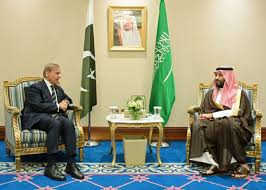Italy calls for whole-of-society defense against hybrid threats

Rome: On Friday, Frascati became Europe’s strategic hub. At ESA-ESRIN, ministers, NATO chiefs, EU commissioners and industry leaders gathered for the States General on Defense, space and cybersecurity. The message: the challenge is not only military, but also economic, technological and democratic.
Decoding the news. During the States General of Defense in Frascati, Italy showcased itself as a bridge between institutions, industry and academia, positioning as a driver of Europe’s push for security and strategic autonomy.
Information defense comes first. The line between peace and war — kinetic, digital, cyber and physical — is increasingly blurred.
Information quality, integrity and confidentiality are the compass of liberal democracies. Yet this compass is under attack.
Disinformation, polarization and cognitive biases corrode public debate, turning citizens and their smartphones into vectors of manipulation.
Elections — local, national, European — are becoming sensitive targets. London is debating a national agency against disinformation; Rome and Brussels are being urged to follow.
Hybrid threats: all for one, one for all. Hybrid warfare spans land, sea, air, space, cyber and cognitive domains.
Response requires new intellectual, operational and technological tools.
The formula is whole-of-society defense: from academia to the military, from industry to politics, everyone must be mobilized.
Not alarmism, but grand strategy: top-down leadership combined with bottom-up resilience.
The technology front. Deepfakes, generative AI, quantum computing and cyber operations in space are reshaping the battlefield.
Critical infrastructure at risk: satellites, telecom, navigation and radio frequencies.
Europe must adopt common regulatory and sanctioning tools, plus joint research and training programs.
A cultural shift is needed: cybersecurity and digital literacy as strategic civic skills.
The clash of systems. The confrontation is Democracies vs Autocracies.
Autocracies act with speed and decisiveness; democracies debate and consult, leaving their information systems exposed.
In 2024 alone, over 500 hybrid attacks targeted Italy’s institutions and citizens’ trust.
The priority: defend the cognitive domain and secure electoral processes and decision-making mechanisms.
The paradox: to defend democracy, democracies may need to touch their own foundations.
If weaponized, freedom of speech and pluralism risk becoming tools of division and disinformation.





